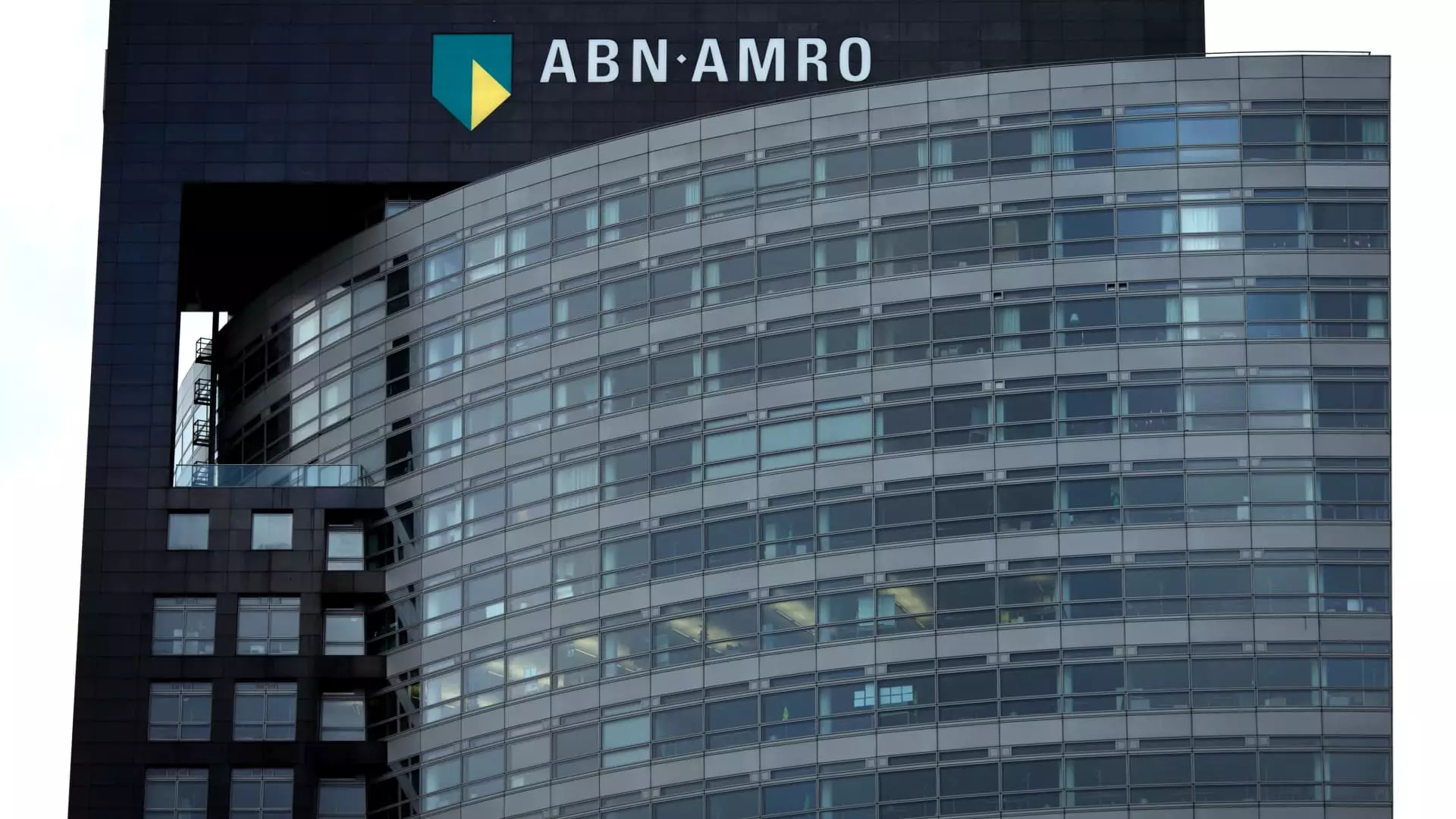In a significant move, the Dutch government has declared its intention to shrink its stake in ABN Amro from 40.5% to 30%. This decision was confirmed on Tuesday and involves a meticulously organized trading plan managed by Barclays Bank Ireland. Following this announcement, ABN Amro’s stock began the day trading lower, reflecting the market’s response to the impending reduction of government involvement in the bank. As of 9:15 a.m. London time, shares of ABN Amro were down 0.6%, showcasing a slight decline that aligns with investor sentiment regarding reduced government control.
ABN Amro’s trajectory over the past decade has been turbulent, marked by a substantial bailout during the financial crisis of 2008. The government’s intervention was aimed solely at stabilizing the financial landscape rather than seeking profit. Eelco Heinen, the Finance Minister, emphasized this point in his recent correspondence with parliament, reiterating the government’s initial intentions that guided the nationalization of ABN Amro. The privatization of the bank in 2015 marked a new chapter, but the government has been steadily divesting its shares since last year, showcasing a clear strategy towards reducing its stake completely.
The timing of this stake reduction can be viewed through various lenses. The government had previously sold shares worth approximately 1.17 billion euros, successfully reducing its holdings below the 50% threshold—a psychological and strategic milestone. The funds generated from these sales were not merely channeled into state coffers but were also utilized to alleviate national debt burdens. Analysts observe that the current share price of ABN Amro, standing at 15.83 euros, falls significantly short of the 31.49 euros per share deemed necessary for the government to break even on its total investments. Given the current market conditions, Heinen described these expectations as “not realistic” in the near term, suggesting that while the government is committed to selling off its stake, the economic landscape poses challenges.
This announcement occurs during a time when the European banking sector is abuzz with speculation and potential mergers. UniCredit’s interest in acquiring a stake in Commerzbank has rekindled discussions about the viability of cross-border mergers within the region, reigniting debates regarding the necessity for a comprehensive banking union in Europe. The Dutch government’s decision is part of a broader trend, as several European nations, including the U.K. and Germany, take advantage of a rebound in financial markets to offload contingency stakes in banks previously bailed out during the crisis.
Furthermore, ABN Amro remains a topic of speculation, having previously been linked to potential acquisition talks with BNP Paribas, although those rumors were swiftly denied by the French banking giant. As the Dutch government navigates this divestment, the future of ABN Amro and its role within the competitive banking landscape will be closely monitored. Investors and market watchers alike will be keen to see how this strategic shift will impact not only ABN Amro’s stock price but also the overarching stability of the banking sector in Europe. The unfolding developments in the banking sphere underscore a pivotal transformation as governments increasingly reevaluate their stakes and strategies in financial institutions they once controlled.

Leave a Reply